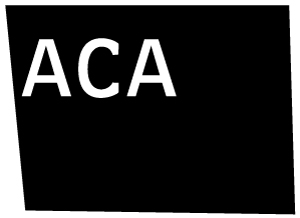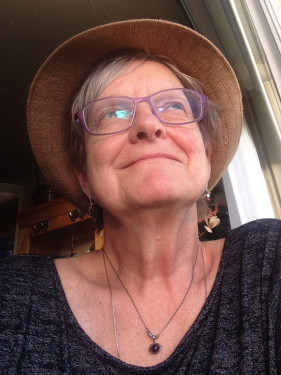Residency Dates: February 19, 2017 - March 11, 2017
Application Deadline: September 18, 2016
Heather McHugh is the Pabst Endowed Chair for Master Writers.
Heather McHugh is the author of eight volumes of poetry including Eyeshot (2004), which was shortlisted for the Pulitzer Prize and a New York Times Notable book, Hinge and Sign (1994), which was a finalist for the National Book Award and named a Notable Book of the Year by the New York Times. Her most recent collection, Upgraded to Serious (2009), was described by the New Yorker as “animated but serious…meaning and humor can be found in a single word.” Her other titles include The Father of Predicaments (2001), Shades (1988), To the Quick (1987), A World of Difference (1981), and Dangers: Poems (1977). McHugh served as the editor of The Best American Poetry in 2007.
An acclaimed translator, McHugh worked alongside her husband Nikolai Popov on Glottal Stop: Poems of Paul Celan, which was called “dazzingly creative” by J.M. Coetzee and won the Griffin International Poetry Prize in 2001. The New York Times Book Review wrote, “In Glottal Stop, the translators…take greater risks…but the poetic rewards are…at times breathtaking.” She has also translated, with Niko Boris, the poetry of Blaga Dimitrova and poems by Jean Follian.
Her honors include two grants from the National Endowment for the Arts, PEN, a Lila Wallace/Reader’s Digest Award, and a Guggenheim Fellowship. In 2009 she was awarded a MacArthur Foundation “Genius Grant”—the judges citation described her as “a poet whose intricately patterned compositions explore various aspects of the human condition and inspire wonder in the unexpected associations that language can evoke;” and her work as combining “a range of literary traditions in poems that focus on our struggle to mediate the world and our place in it through the filter of sensory perceptions. She mines words for contradictions and double-meanings, offering the reader an expansive, fresh perspective on such themes as love and mortality.”
She is also a dedicated teacher and scholar, who has served as a visiting faculty member at the Warren Wilson MFA Program for Writers for over 30 years. She has also published a collection of criticism, Broken English: Poetry and Partiality. McHugh is the Milliman Writer-in-Residence at the University of Washington in Seattle, where she lives.
McHugh’s current project is CAREGIFTED, a nonprofit organization that grants respite to long-term family caregivers—“full-time caregivers of the most severely disabled have sacrificed their own leisure, resources and ambitions to serve those unable to serve themselves; such acts of love go largely unnoticed because these caregivers are generally confined to their homes, mired in unpaid labors”—by offering weeks away in inspiring locations—scenic vacation spots where caregivers can refresh their perspectives and record their views in words and images, returning home better rested and represented. www.caregifted.org
For more information, please visit http://www.poetryfoundation.org/poems-and-poets/poets/detail/heather-mchugh
Residency Statement
Passion and Pattern: Putting the Pain to Work
As artists, we are driven by passions, but drawn to order. How do we reconcile the two? Are they even at odds?
Driven by something uncontainable, we cannot capture it. (The engagement is inexpressible in terms of conquest.) But we can communicate it.
When the pains of feeling aren’t to be conquered, we take pains—if only to give them voice.
The very variousness of our communications (even our communications of events we have “in common”) bespeaks some insecurity in the nature of feeling. (Fellow feeling is more an outgoing wish than an incoming certainty.)
That’s why art does not merely make sense. It shakes it. Passion is registered, even heightened, in patterns. Patterns are what trigger the release of powerful responses in fellow beings. Patterns are readable.
From among the works you produce during your nights and mornings, as well as from works you’ll submit in advance, from the works of other artists, and even from the evidences of nature, I’ll make a handbook for us to peruse each working afternoon, in consideration (and in provocation) of these patterns.
Four of our five weekly workday afternoons, we’ll meet for two hours of conversation. On the fifth afternoon each week, I’ll schedule individual meetings with students.
We’ll bring to each meeting a dedicated attention to the evidence (for art extends in ways even the artist does not intend). Our conversations will be strengthened by our precision about that evidence; but also (equally!) by a wild willingness to move (and be moved) beyond the realms of prejudice and verdict.
Application Requirements
Please submit in advance:
1. The five of your existing poems in which the triggering event or emotional occasion is most obliquely, indirectly, or covertly registered. (.doc, .docx, .pdf)
2. Ten sentences about the course or curve of your life, as you see it today. (.doc, .docx, .pdf)
3. The names of up to three artists (in any medium) whose works have shaken you to the core. (.doc, .docx, .pdf)
Residency Fee: $900
Includes a $100 administration fee, weekday meals and housing; does not include artist materials, transportation, or weekend meals.
Scholarships / Financial Assistance
Only accepted Associate Artists may apply for financial assistance. For details, please visit the master artist details page.

